Concrete is a strong, durable material that makes a solid choice for your driveway. But a concrete driveway requires careful planning and construction to prevent costly repairs later on.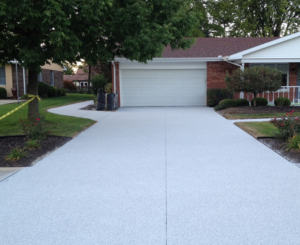
Ensure your concrete is properly cured to reduce the likelihood of cracking and surface deterioration. Consider resealing your concrete driveway every three to five years to further reduce the chances of damage. Read on Level Ground Excavation to learn more.
Concrete is one of the most durable materials available, and well-maintained concrete driveways can last 30 years or more without significant cracking or other damage. It stands up to most chemicals and is resistant to abrasion. It’s also a great option for homeowners who don’t want to deal with the hassle of an active, hands-on maintenance schedule. Concrete driveways also cost less than asphalt, and they can be stained to match a wide range of home styles and colors.
Concrete is a composite material made from aggregates, water, and a cement binder. It can be poured in any shape and finished with tints, stains, stamps, and engravings for aesthetic appeal. It can even be shaped into different patterns and textures to mimic other materials, such as brick, tile, stone, or slate.
Unlike asphalt, concrete does not melt when it’s heated. This makes it more suitable for colder climates prone to freezing and thawing cycles. Concrete is also much thicker, making it more stable and able to withstand heavy loads.
Once the concrete is poured, it needs to sit and cure for several days. During this time, it goes through a chemical process that strengthens and solidifies the slab. It’s important that the concrete be allowed to cure in a well-ventilated area with minimal sunlight exposure. It should be kept moist at all times, and the surface can be dampened with a hose or bucket of water to keep it from drying out too quickly.
When the concrete has fully cured, it’s ready to be used. Some contractors may add surface treatments, such as oil sealing or gravel stacking, to increase the durability of the concrete. However, it’s recommended that you choose high-quality concrete for your driveway, regardless of the additional surface enhancements.
A popular choice for driveways is stamped concrete, which combines the durability of concrete with the design options of pavers. It involves pressing a pre-designed template into the wet concrete before it sets, which allows for greater creativity in the look of your driveway. This can be especially useful if you’re looking to boost your home’s resale value, as it adds an attractive element that many buyers will appreciate.
Versatility
Concrete is a versatile material that can be used for many different purposes. For instance, concrete can be colored to match the exterior of your home or brushed to create a more unique texture. This versatility makes it a great choice for driveways. Concrete is also quite durable and can withstand the weight of even the heaviest vehicles. If you’re thinking about replacing your existing asphalt driveway, a concrete one may be a better option.
Compared to asphalt, concrete is much more durable and can last for up to 50 years. It can withstand heavier loads, which is especially helpful for those with large trucks or RVs. It is also eco-friendly, as it requires less energy to produce than other paving materials. In addition, a well-fabricated concrete driveway is more cost-effective in the long run than an asphalt one.
When you install a concrete driveway, it is important to prepare the site thoroughly before pouring the concrete. This includes removing the existing thin layer of asphalt and compacting the gravel base. The driveway should also be sloped so that rainwater can flow away from the structure.
To minimize the risk of random cracking in the concrete, it is recommended to provide isolated control joints during construction. These should be placed a minimum of 10 feet apart. For a typical 4-inch-thick concrete slab, this will increase the load-carrying capacity by 40%.
Concrete driveways offer a wide variety of design options to complement any style of architecture. The surface can be colored to match the home, stamped with various patterns, made to look like brick, or brushed for a textured finish. In addition, saw-cut control joints can be strategically placed to create a unique pattern.
Concrete is a composite material comprised of stone aggregate, water, and a cement binder. The aggregate size varies and can range from sand to gravel. The mix can be adjusted based on climate, with lower strengths and air contents suitable for milder conditions. During the concrete forming process, it is important to maintain the correct slump value and water content. A concrete professional can assist you with this.
Customizability
Concrete is a highly versatile material and offers more options for customizing your driveway’s look than asphalt. Aside from the traditional flat gray slab, you can get it stained or stamped with a pattern to match your home and landscape design. Some homeowners even choose to leave some of the aggregate exposed, which gives the concrete texture and unique appearance that appeal to many people. Unlike asphalt, you can also incorporate saw-cut control joints to add visual interest and character to your concrete driveway.
In addition to color, you can stain concrete to mimic other materials like pavers or slate, making it a great way to add more curb appeal to your home. Stained concrete is also impervious to cracking, chipping, and peeling, so it will look good for years. For a truly unique look, consider using a concrete stamp with an inlaid image. Popular choices include compass roses, medallions, geckos, and Kokopelli designs.
Because it absorbs less heat from sunlight, a concrete driveway stays cooler than an asphalt one and can help reduce energy bills for your home. In addition, the reflective surface of a concrete driveway can reduce the need for lighting.
While a concrete driveway can be more expensive upfront than an asphalt one, it requires significantly less maintenance. This can make it a wise investment for homeowners who plan to live in their homes for a long time and want a driveway that will enhance the value of their property.
A well-maintained concrete driveway can last 30 years or more, providing an excellent return on investment for homeowners. In addition, it can increase the resale value of your home and provide a beautiful entryway to your property. However, if you’re not careful, your driveway can quickly become damaged or unattractive, and you might need to repair it or replace it sooner than you would if you had an asphalt drive. In order to prevent this, it’s important to understand the common issues that can damage your driveway so you can be proactive about addressing them. Keeping an eye out for these common problems can help ensure that your concrete driveway lasts for as long as possible.
Maintenance
Concrete driveways can last up to 30 years with proper care and maintenance. They require less work than asphalt driveways, and their longevity often leads to savings on repair and resurfacing costs. In addition, they can add value to a property and increase its resale value.
Like all types of materials, concrete needs regular maintenance to look its best and stay in good condition. For concrete driveways, this can include applying a seal to protect the surface from the elements and removing oil, fuel, or chemical stains as soon as they happen. For stains that have set in, using non-clumping kitty litter and grease-cutting dishwashing detergent is a good start. For more serious stains, it’s often necessary to use degreasers.
Because concrete is naturally porous, it’s susceptible to water penetration, which can cause cracks and fissures. This problem is most prevalent in Minnesota, where freezing temperatures can cause the water inside the concrete to expand and damage the structure. Preventing this is easy by ensuring that the concrete is properly poured and by installing a drain in the bottom of the concrete to ensure it stays dry.
A concrete driveway is also vulnerable to water spots and etching, but preventing these issues requires regular cleaning. To keep the concrete looking its best, it’s recommended to sweep the surface on a regular basis and to apply a water-based sealer to the surface every few years. This is an easy DIY project that can help extend the life of your concrete driveway.
Heavy snowfalls are a common cause of damage to concrete, and homeowners should be mindful of how they remove snow from their driveways. For example, metal shovels are likely to scratch the concrete and should be avoided in favor of plastic shovels or a snow blower. Similarly, rock salt and de-icing chemicals can damage the concrete by causing it to deteriorate at a faster rate.
It’s also important to avoid parking on the edges of a concrete driveway, as these areas are likely to be more prone to damage. Also, it’s a good idea to remove any trees or large shrubs that may grow near the concrete. This will prevent the roots from pushing up against the surface and causing cracks or other damage over time.
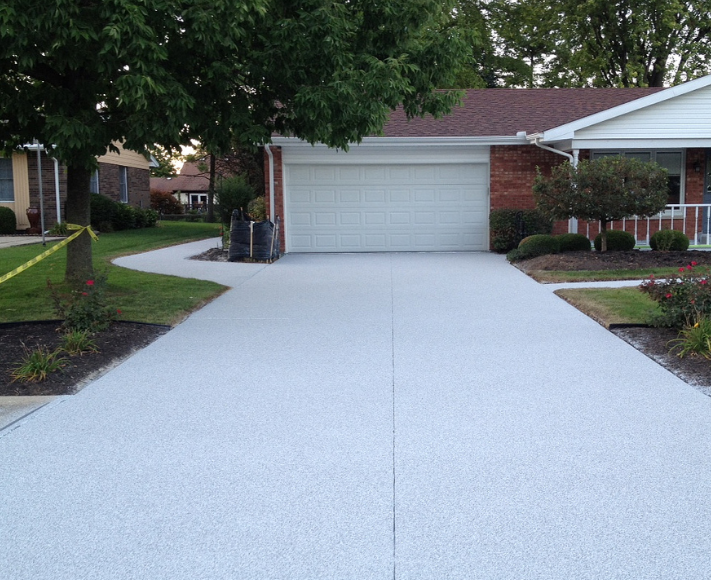

 When designing a boat dock, consider the desired functionality, features and materials to maximize the use of your waterfront property. You’ll also want to consider environmental factors such as the surrounding water and wind conditions.
When designing a boat dock, consider the desired functionality, features and materials to maximize the use of your waterfront property. You’ll also want to consider environmental factors such as the surrounding water and wind conditions.

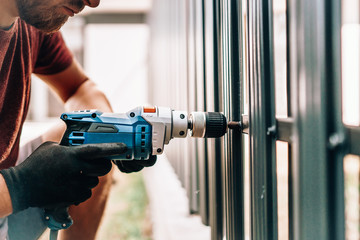
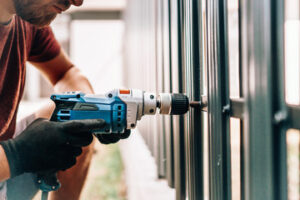 A fence is a great way to add curb appeal and security to your property. It can increase your home’s value by up to $5,000, depending on the type and material of fence you choose. It is also one of the most affordable ways to increase your home’s security. However, it’s important to consider the cost of materials and installation before committing to a fence project.
A fence is a great way to add curb appeal and security to your property. It can increase your home’s value by up to $5,000, depending on the type and material of fence you choose. It is also one of the most affordable ways to increase your home’s security. However, it’s important to consider the cost of materials and installation before committing to a fence project.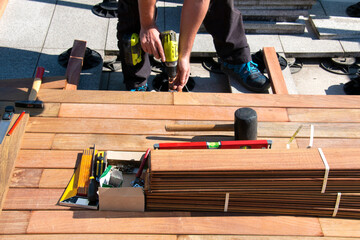
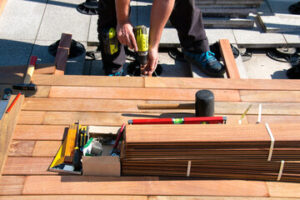 When building your new deck, there are many different options. This allows homeowners to customize their space to suit their tastes and complement the home and surrounding environment. The use of unique lighting, a variety of different seating and accent pieces and a host of other design choices allow the homeowner to truly create their own outdoor oasis that will be enjoyed for years to come with family and friends.
When building your new deck, there are many different options. This allows homeowners to customize their space to suit their tastes and complement the home and surrounding environment. The use of unique lighting, a variety of different seating and accent pieces and a host of other design choices allow the homeowner to truly create their own outdoor oasis that will be enjoyed for years to come with family and friends.
 A water stain on your home’s ceiling may need to be addressed promptly but may not necessarily constitute an emergency roofing situation. Here are some common types of emergency repairs:
A water stain on your home’s ceiling may need to be addressed promptly but may not necessarily constitute an emergency roofing situation. Here are some common types of emergency repairs:
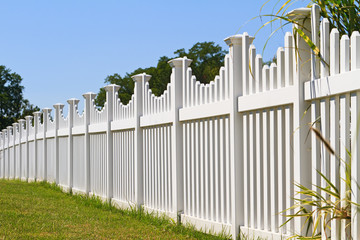
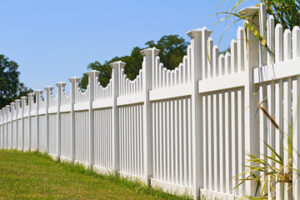 You might consider installing a vinyl fence if you’re in the market for a new wall. But what exactly is the vinyl fence? This synthetic material is made from plastics, including recycled plastics. Sometimes, the plastics are combined to give them more strength and UV stability. It’s also known as PVC or vinyl fence. Here are some benefits and disadvantages of vinyl fences. Read on to learn more about this versatile material.
You might consider installing a vinyl fence if you’re in the market for a new wall. But what exactly is the vinyl fence? This synthetic material is made from plastics, including recycled plastics. Sometimes, the plastics are combined to give them more strength and UV stability. It’s also known as PVC or vinyl fence. Here are some benefits and disadvantages of vinyl fences. Read on to learn more about this versatile material.